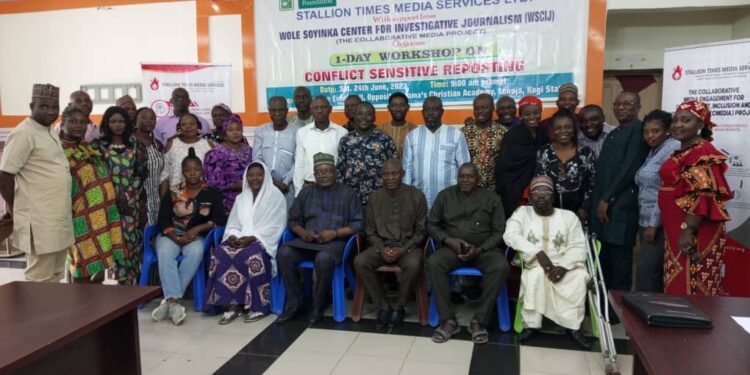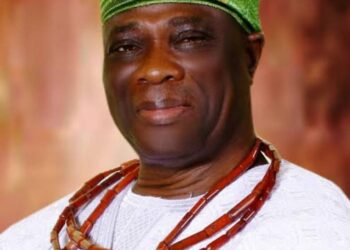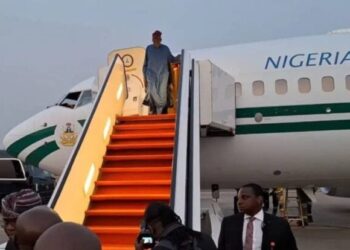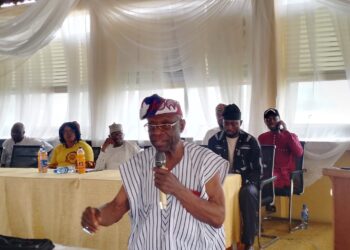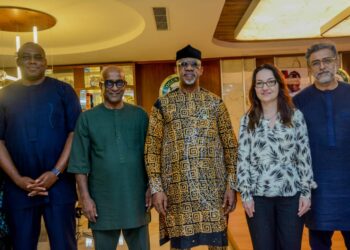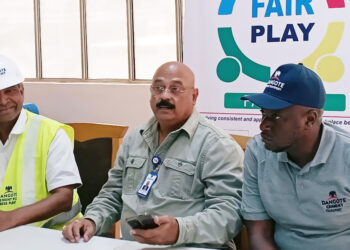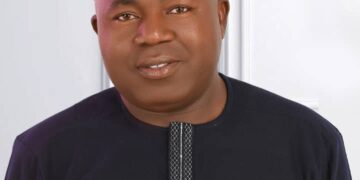Lokoja – Journalists in the country have been charged to create awareness and ease political and other societal tension, caused by poverty, illiteracy and absence of good governance.
The call was contained in a communique issued at the end of a one-day training workshop on ” Conflict Sensitive Reporting” held in Lokoja, Kogi State.
The communique said journalists can achieve this through their important roles of information dissemination, education and entertainment of the citizens.
The communique was signed by Adeiza MomohJimoh, Chairman, Kogi State Council of the Nigeria Union of Journalists (NUJ) and Isiyaku Ahmed, Editor-in-Chief,
Stallion Times Media Services.
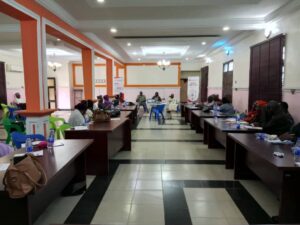
The one-day training workshop was organised by
Stallion Times Media Service in Kogi State as one of its activities in year 2 of the 3-year Participatory Governance and Media Literacy project tagged “Get Involved, Dialogue and Improve (G-DRIP)” in Kano and Kogi states.
The project is being implemented in collaboration with the Wole Soyinka Center for Investigative Journalism under the Collaborative Media Project with support from the MacArthur Foundation.
Participants at the workshop, drawn from a cross-section of the media urged journalists not to suppress facts but should always be mindful of choice of words in their reportage.
The communique further reads; “While believing that free, independent and pluralistic media provide a platform for debate and different opinions, Participants caution against the media being misused for propaganda purposes, to incite hatred and spread rumours, thereby artificially creating tensions.
“The workshop believes that finding a balance between preventing harm caused by speech and protecting individual expression is a problem though important especially in conflict situations and Journalists therefore, have to stay clear of judgmental representations and should describe reality without embellishment.
“Journalists must first understand the issues in conflicts in order to be objective and not to aggravate the conflicts.
“Journalists must try to identify conflicts triggers.
Journalists should not suppress facts but should be mindful of choice of words in their reportage.
“Journalists should recognise their constitutional roles in conflicts reportage.”
The communique
recommended that;
“Peace building should be the core objective of journalism reportage.
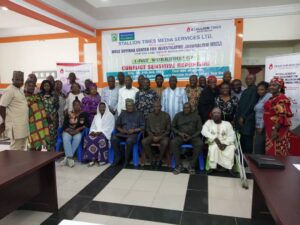
“Journalists should be mindful of their safety by adhering to usage of safety kits while covering in conflicts zones.
“Journalists should adhere strongly to their Code of Ethics.
“Journalists should not be carried away by the ‘Breaking News syndrome.’
“Journalists, editors and media owners should build professional solidarity to promote ethics and good governance.
“Journalists should in spite of threats, redouble their efforts and live up to the values and standards of the profession.
“Media practitioners should expose, isolate, and eliminate all forms of incitements to intense hatred and violence.
“Owners of media houses must provide a framework for providing healthcare and social protection for journalists.
“Media professionals must be trained and re-trained on political, physical and social terrain in which they operate.
“A body should be set up to regulate the activities of journalists in Nigeria.
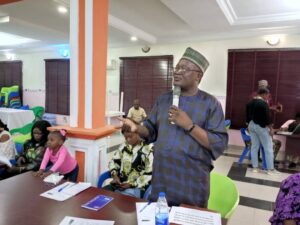
The workshop held on Saturday, June 24 was to encourage accurate, objective and balanced reportage of conflict situations and arrest the worsening unethical media reports, leading to abuse or irresponsible journalism that pursues sensationalism, biases, prejudices, and blackmail
(vitalnewsngr.com)


